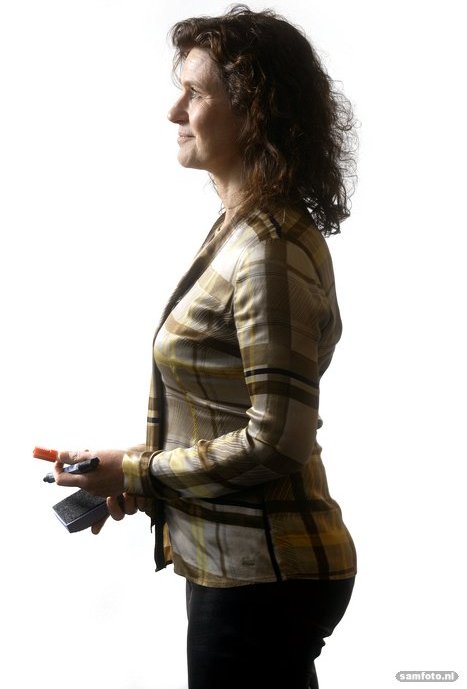View - Annoesjka Cabo
Dr Annoesjka Cabo is academic director of the Teaching Academy and director of Service Teaching. She wants to make teaching more flexible and personal using new methods.
Teaching at TU Delft is facing a number of challenges at the moment, primarily the growth in student numbers, both in the Bachelor’s and Master’s degree programmes. We also need to find the best way to prepare students for their future. We give them knowledge, but there is also a growing demand for skills such as cooperation, communication and being able to deal with unexpected and unknown situations. Engineers should dare to think outside the box, and not be afraid to make mistakes. To overcome these challenges, we need to use different teaching methods.
TU Delft has developed a considerable portfolio of online education. It’s worthwhile exploring how we can use that material in campus teaching.
That’s why we are now focusing on blended learning, a mixture of good preparation at home and lectures with an emphasis on interaction and questions. Students can also practice on online platforms and get feedback immediately. There are platforms where you can do sums, write code for programming languages, or give feedback on the work of others.
Several projects have shown that students appreciate this way of working. Lecturers have noticed that students participate more actively now. Ideally, this will improve the student’s learning experience without increasing the lecturers’ workload.
TU Delft Bachelor’s degree programmes still have high dropout rates. We are currently in talks with The Hague University of Applied Sciences to see if we can do more by way of cooperation and exchanges. I think it would be beneficial for a particular group of pre-university students to start by doing a joint semester at both a university and a university of applied science as a transition class to see what is the best option for them.
We’re also discussing Master's degree programmes. The nominal study period is two years, but some students take much longer to finish. It’s also worth considering whether all programmes should only offer two-year Master’s programmes. Other universities offer one-year Master’s, sometimes with an internship or applied element. I would like to see more flexibility and customisation.
I propagate flexibility at all levels. Students are very different and some of them want more flexibility when it comes to finding their way. Students will always come here to study engineering and then go into research. But TU Delft also has to meet the needs of people who want to develop themselves more broadly or who want to develop other skills.”
Annoesjka Cabo has a PhD in mathematics and graduated as a violinist from the conservatoire. After a career as a concert musician with the Rotterdam Philharmonic Orchestra (among others), she joined TU Delft as a lecturer in 2012. She is now an associate professor in the Statistics research group at the Department of Applied Mathematics (DIAM). She plays the violin in her spare time. She will perform with pianist Bas Verheijden in the Aula Building on 23 December.
